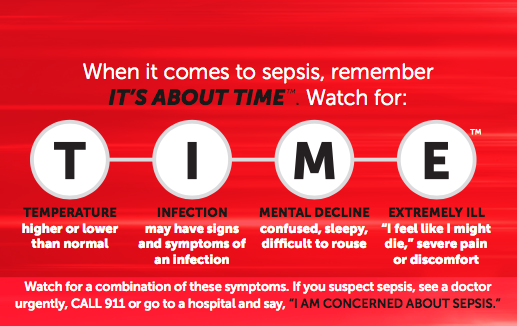Time to Prepare for the 2019/2020 Flu Season
September 27, 2019
You can get influenza, the flu, any time of the year. But flu season in North America generally lasts from October to as late as May, peaking between December and February. Flu season is also the time of year when people are more likely to be cooped up indoors and viruses spread more easily. Influenza is a respiratory virus that can cause serious complications, even sepsis.
The Centers for Disease Control and Prevention (CDC) reported that the 2018/2019 flu season in the United States caused an average of 40 million flu illnesses, and up to 647,000 hospitalizations, more than the population of Las Vegas, Nevada. And of those who were hospitalized, 61,000 died.
Australia’s flu season is coming to a close and reports indicate that 2019 was one of its worst flu seasons on record, with almost 300,000 people so far having laboratory-confirmed cases of the illness. This doesn’t take into account the number of people who had the flu but didn’t seek medical help. Some experts say that reported numbers could be as low as 10% of the actual numbers. In addition, their flu season started earlier than usual – beginning in April rather than June.
Why be concerned about Australian flu season?
The 2019/2020 flu season seems to be getting off to an early start and experts are concerned that this year will be tougher than usual. Although not always, traditionally the North American flu season mirrors that of Australia – if Australia has a tough year, this tends to repeat here. The advantage that North American health professionals have, however, is the early warning from Australia, allowing for us to be more prepared.
There are news reports of doctors and clinics seeing patients already with flu symptoms. For example, a news report from Alabama earlier this week said there have been several confirmed cases of the flu in the northern part of the state. For this reason, the flu vaccine is available earlier in some areas in the U.S.
Timing the vaccines
There is new guidance from the CDC regarding the influenza vaccine for the 2019/2020 flu season. They include:
- Vaccines should be made available to the public by the end of October.
- Too early vaccination could lessen the vaccine’s effectiveness later in the season, especially among older adults.
- Children aged 6 months to 8 years who require two doses of the vaccine should be given their first dose as soon as the vaccine is available so the second dose is given by the end of October.
- The standard flu shot is still recommended for most people.
- People aged 65 years or older may benefit from the high-dose injection or the flu vaccine with adjuvant, which boosts the effectiveness.
- There is also a vaccine that can be given by nasal spray and another for people who are allergic to eggs.
Not everyone can get a flu vaccination. Some can’t be vaccinated because of a medical condition or they are too young. They depend on the people around them to protect them from becoming ill. If enough people who can get vaccinated do, this provides herd immunity – keeping the virus away from those who are not protected.
What the flu is not
Influenza is not a tummy bug. People who are nauseous and don’t feel well may say they have the flu, but they likely don’t. Influenza is a serious, very contagious, respiratory illness. Symptoms include:
- Fever and chills
- Cough
- Sore throat
- Muscle and body aches
- Severe headache
- Fatigue
If you suspect you have the flu, it’s important to stay away from other people, even if you try to take precautions. The flu virus can live on hard surfaces, such as door handles and cash machines, for many hours. Someone can become infected long after you’ve gone.
Flu symptoms can last a week or two, and it can take several weeks to get fully back on your feet. If you don’t start feeling better or you start to get seriously ill, you should seek medical help. Influenza is an infection and can trigger sepsis, your body’s inflammatory response to an infection. Watch for the signs and symptoms of sepsis and if you are concerned, call 911 and say, “I’m concerned about sepsis.”

Learn more about influenza and how it can trigger sepsis on our Sepsis and Influenza, part of our Sepsis and… library.





























